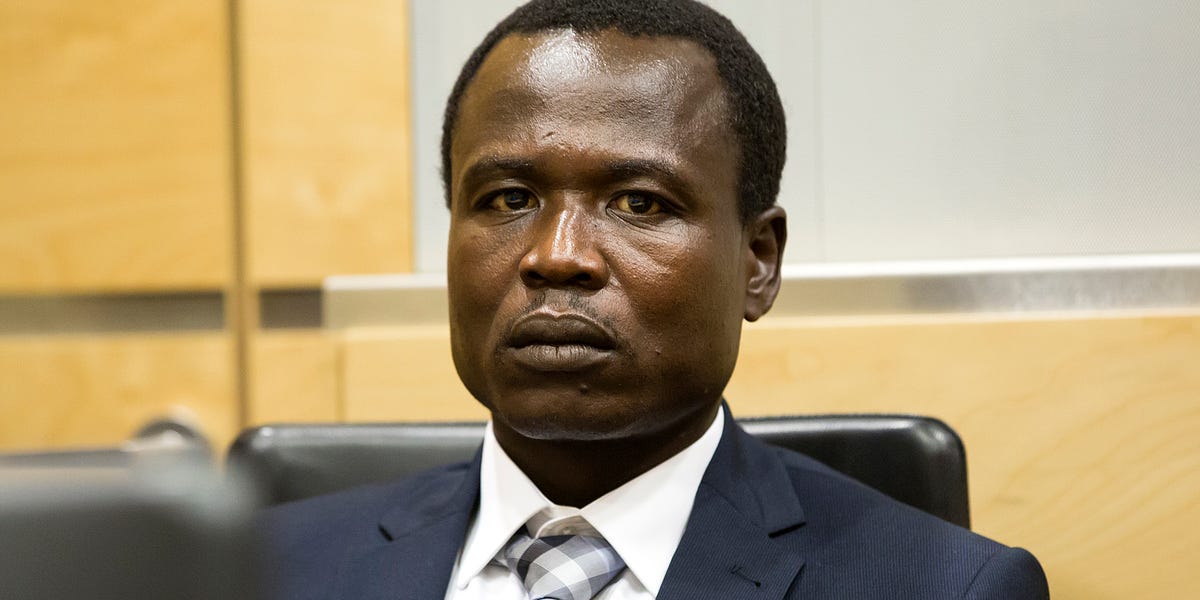The Trial of Dominic Ongwen: Child Soldier Turned Rebel Commander
Kernekoncepter
The author argues that Dominic Ongwen, a former child soldier turned rebel commander, was not mentally ill as claimed by his lawyers but was in control of himself and his actions.
Resumé
In the trial of Dominic Ongwen, a former child soldier turned rebel commander, the mental state of the accused is a central point of contention. Psychiatrist Gillian Mezey testified that Ongwen was faking his illness and had control over himself and his men. The intense courtroom drama unfolded as Ongwen confronted the witness, showcasing moments of tension and defiance.
The Extraordinary Trial of the Child Soldier Who Became a Brutal Rebel Commander
Statistik
March 19, 2018: Date of Gillian Mezey's testimony before the International Criminal Court.
Three years: Duration spent by Ongwen in prison in Scheveningen.
Almost three hours: Length of time Mezey spoke about Ongwen's mental state during the trial.
Citater
"Your honor, I don’t want to listen to the witness anymore. Thank you, madam witness. You’re the one who does all the talking. But were you in the LRA?"
Vigtigste indsigter udtrukket fra
by Johannes Boh... kl. www.narratively.com 03-04-2024
https://www.narratively.com/p/the-extraordinary-trial-of-the-child-soldier-who-became-a-brutal-rebel-commander
Dybere Forespørgsler
How does the mental state evaluation impact legal proceedings in cases involving former child soldiers
In cases involving former child soldiers, the mental state evaluation plays a crucial role in legal proceedings. The assessment of the accused's mental health can determine their capacity to stand trial and be held responsible for their actions. It is especially significant when considering individuals like Dominic Ongwen, who were recruited as children into rebel groups and subjected to extreme violence and indoctrination. Evaluating their mental state helps in understanding the impact of such traumatic experiences on their psychological well-being and decision-making abilities. This evaluation can influence sentencing outcomes, with considerations for rehabilitation rather than punitive measures.
What role does cultural background play in understanding the behavior and actions of individuals like Dominic Ongwen
Cultural background is essential in comprehending the behavior and actions of individuals like Dominic Ongwen. Ongwen's Acholi heritage from Northern Uganda shapes his worldview, values, and responses to his circumstances. Understanding his cultural context provides insights into how factors such as intergenerational trauma, societal norms, and traditional beliefs may have influenced his involvement with the Lord's Resistance Army (LRA). Additionally, cultural perspectives on justice, forgiveness, and reconciliation play a role in shaping perceptions of accountability for crimes committed by individuals like Ongwen within their communities.
How can courtroom dynamics influence perceptions of guilt or innocence in high-profile trials
Courtroom dynamics can significantly impact perceptions of guilt or innocence in high-profile trials like that of Dominic Ongwen. The behavior exhibited by the accused during proceedings can sway public opinion and influence media coverage of the case. Outbursts or emotional displays may be interpreted as signs of guilt or remorse by some observers while being seen as attempts to manipulate sympathy by others. Moreover, interactions between witnesses, lawyers, judges, and security personnel contribute to shaping narratives about the defendant's character and credibility. These dynamics can create biases that affect how evidence is perceived and ultimately impact judgments rendered in these complex trials involving sensitive issues such as child soldier recruitment and war crimes committed during armed conflicts.
0
